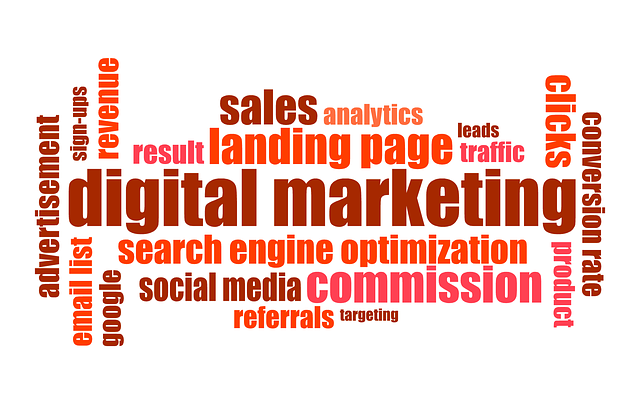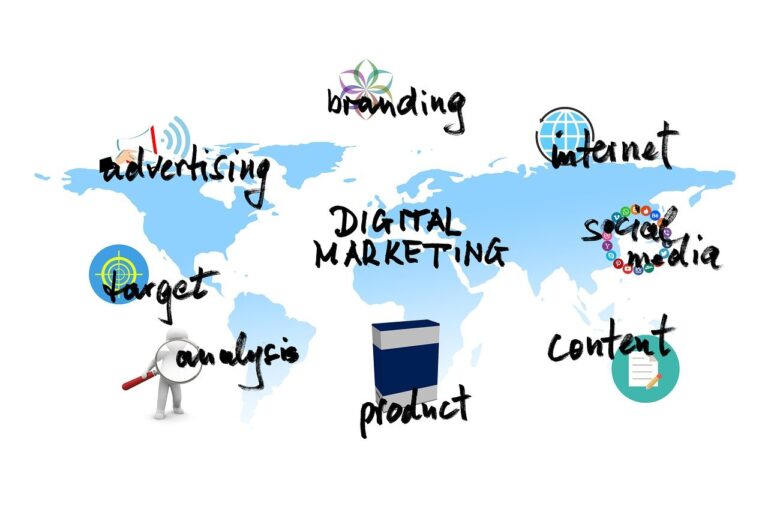1.Intro: Understanding Digital Marketing Glossary Terminology
In the ever-evolving world of digital marketing, understanding the terminology is crucial for success. Whether you’re a beginner or an experienced marketer, having a clear grasp of common digital marketing terms helps you navigate strategies, tools, and techniques. In this post, we’ll explore what is digital marketing glossary, breaking down essential terms that every marketer should know to improve their efforts.
2. What is a Digital Marketing Glossary?

So, what is a digital marketing glossary exactly? It’s a collection of key terms and phrases used in the digital marketing landscape. Think of it as a dictionary that simplifies complex jargon. This glossary will guide you through terms related to SEO, content marketing, social media, and more, helping you become more fluent in the language of digital marketing.
3. Key Terms You Should Know in Digital Marketing

Before diving into specific categories, let’s start with some foundational terms that appear frequently in the digital marketing world. Examples include “bounce rate,” “conversion,” “CTR (Click-Through Rate),” and “ROI (Return on Investment).” Understanding these basic terms will make it easier to grasp more advanced concepts.
4. SEO (Search Engine Optimization) Terms: Improving Online Visibility

SEO is essential for improving the visibility of your website. Some key SEO terms to know include “keywords,” “backlinks,” “meta description,” and “on-page optimization.” Knowing these terms can help you implement strategies that boost your ranking on search engines. This is a critical area covered in what is digital marketing glossary because SEO plays a foundational role in any online marketing strategy.
5. Content Marketing Glossary: Terms to Enhance Your Strategy
The goal of content marketers is to draw in and keep readers’ interest with high-quality writing. Terms like “content audit,” “evergreen content,” “content calendar,” and “call-to-action (CTA)” are common in this field. Knowing these will help you better plan and execute your content strategy. As you explore what is digital marketing glossary, these terms will guide you toward creating meaningful and effective content.
6. Social Media Marketing Terms: Navigating Popular Platforms

In social media marketing, the language can be a bit different. Understanding terms like “organic reach,” “engagement rate,” “hashtags,” and “influencer marketing” will help you leverage platforms like Instagram, Facebook, and Twitter. Social media plays a huge role in modern marketing, making it a critical part of what is digital marketing glossary.
7. Email Marketing Glossary: Understanding the Basics
Email marketing is still one of the most efficient methods of digital advertising. Common terms include “open rate,” “CTR (Click-Through Rate),” “list segmentation,” and “drip campaign.” Mastering these terms allows you to create more targeted and successful email campaigns, another vital aspect of what is digital marketing glossary.
8. PPC (Pay-Per-Click) and Advertising Glossary: Terms for Paid Campaigns
With PPC advertising, you are charged for each click that your ad gets. Important PPC terms include “CPC (Cost-Per-Click),” “CTR,” “ad groups,” and “quality score.” Knowing these terms will help you run more efficient paid ad campaigns. It’s crucial to understand these concepts to truly comprehend what is digital marketing glossary in the context of paid media.
9. Analytics and Data: Important Metrics and KPIs Explained
Data-driven marketing is the cornerstone of any effective digital strategy. Common terms in this field include “KPIs (Key Performance Indicators),” “conversion rate,” “A/B testing,” and “Google Analytics.” Understanding these analytics-related terms helps you measure the success of your campaigns, and they are essential components of what is digital marketing glossary.
10. Influencer Marketing Glossary: Key Terms to Know
Influencer marketing entails partnering with somebody who have a sizable internet fan base. Terms like “micro-influencers,” “affiliate marketing,” “brand ambassador,” and “reach” are frequently used in this area. Knowing these terms will help you understand how influencer marketing fits into what is digital marketing glossary.
11. E-Commerce Glossary: Digital Marketing for Online Stores
If you’re in e-commerce, terms like “cart abandonment,” “conversion funnel,” “upselling,” and “cross-selling” are crucial to your success. These terms help you understand consumer behavior and optimize your online store’s performance. These are vital terms to include in what is digital marketing glossary for those in online retail.
12. Understanding Automation Terms in Digital Marketing
Automation streamlines repetitive marketing tasks. Terms like “marketing automation,” “workflows,” “lead scoring,” and “CRM (Customer Relationship Management)” are key in this area. Familiarity with these terms helps businesses become more efficient, which is why they’re important in what is digital marketing glossary.
13. Glossary of Mobile Marketing: Reaching Customers via Mobile Devices
Mobile marketing targets users on smartphones and tablets. Key terms include “SMS marketing,” “mobile optimization,” “geo-targeting,” and “push notifications.” These terms are essential as more businesses focus on reaching customers on the go, making them a must in what is digital marketing glossary.
14. Glossary of Terms Related to Lead Generation and Conversion
Lead generation is all about attracting potential customers, and conversion is turning those leads into paying clients. Important terms include “lead magnet,” “landing page,” “opt-in,” and “conversion rate.” Understanding these terms is critical for success in digital marketing, which is why they’re part of what is digital marketing glossary.
15. The Future of Digital Marketing: New Terms to Watch

Digital marketing is always evolving, and new terms frequently emerge.Terms such as “voice search optimization,” “blockchain marketing,” “artificial intelligence (AI) marketing,” and “programmatic advertising” are becoming more widespread. Keeping up with these new terms is crucial to staying ahead, making them an important part of what is digital marketing glossary.
16. Conclusion: Why Knowing These Terms is Essential for Success
In conclusion, knowing what is digital marketing glossary helps marketers understand key concepts, tools, and techniques to improve their strategies. Whether you’re new to digital marketing or a seasoned pro, having a solid grasp of these terms will give you a competitive edge and boost your marketing efforts.




